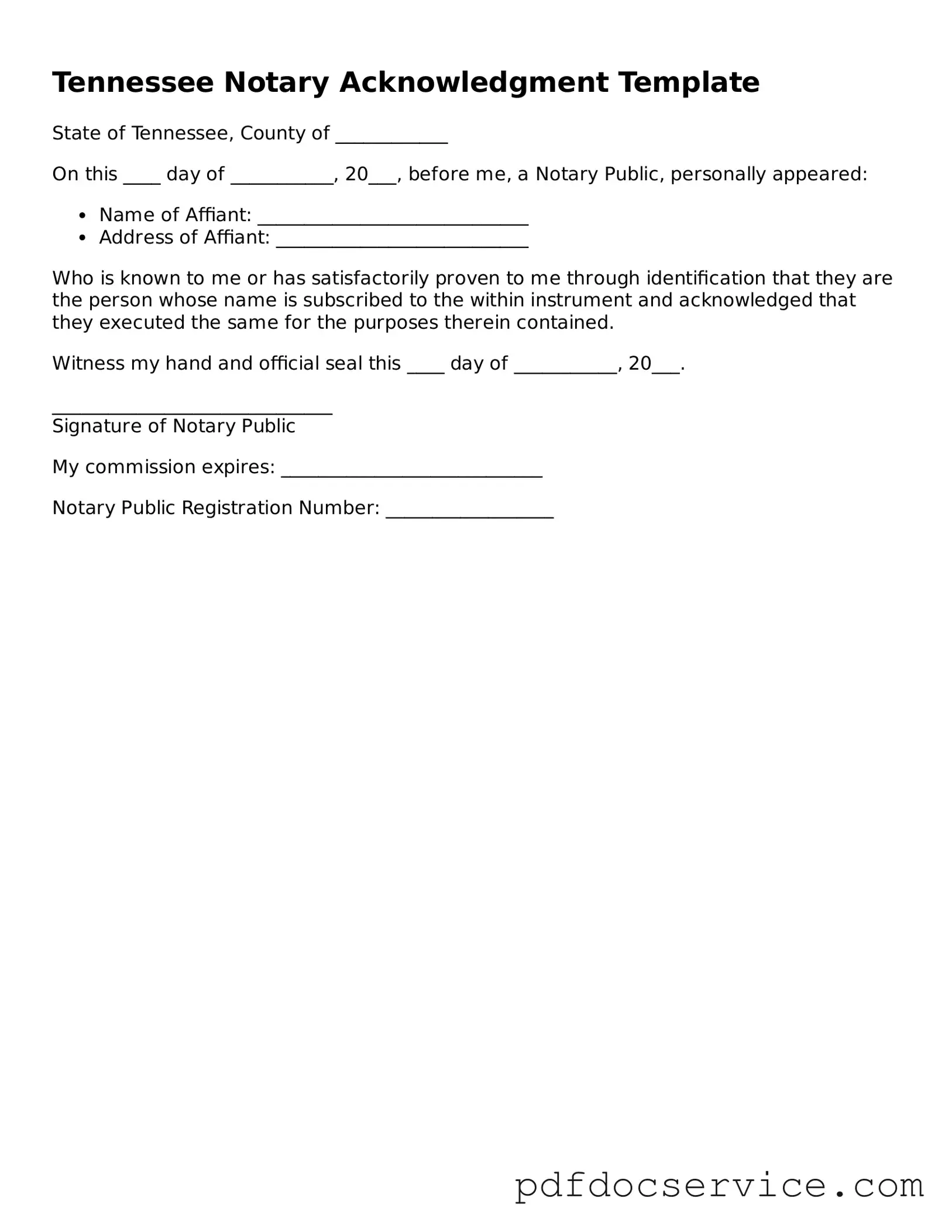Printable Notary Acknowledgement Template for Tennessee
The Tennessee Notary Acknowledgement form is a legal document used to confirm the identity of a signer and the voluntary nature of their signature. This form plays a crucial role in various transactions, ensuring that documents are properly validated. Understanding its components and requirements is essential for anyone involved in notarized agreements in Tennessee.
Open Notary Acknowledgement Editor

Printable Notary Acknowledgement Template for Tennessee
Open Notary Acknowledgement Editor

Open Notary Acknowledgement Editor
or
Get Notary Acknowledgement PDF
Finish the form now and be done
Finish Notary Acknowledgement online using simple edit, save, and download steps.